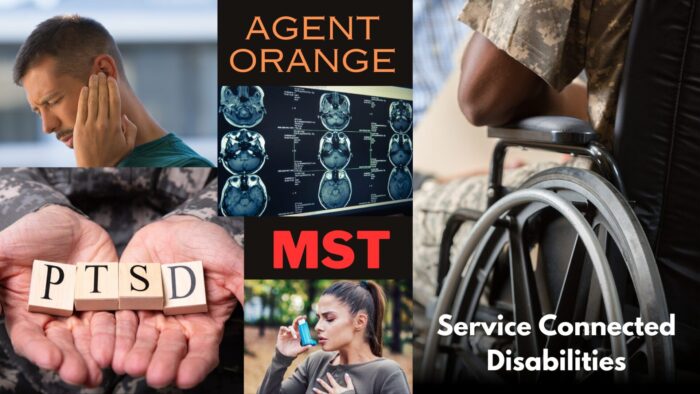Service-Connected Disabilities for Veterans
Service-connected disabilities are conditions or disabilities that veterans may experience as a result of their military service. These disabilities are recognized by the Department of Veterans Affairs (VA), and veterans with service-connected disabilities may be eligible for disability compensation and other benefits. Here are some examples of service-connected disabilities:
Post-Traumatic Stress Disorder (PTSD): A mental health condition that can develop after experiencing a traumatic event. Veterans who have been exposed to combat or other traumatic situations may develop PTSD.
Traumatic Brain Injury (TBI): Brain injuries resulting from exposure to blasts, head injuries, or other traumatic events during military service.
Amputations: Loss of limbs or extremities due to injuries sustained in combat or accidents during military service. The VA offers assistance for home improvements and structural alterations. Visit Rehabilitation and Prosthetic Services to learn more.
Hearing Loss: Exposure to loud noises, such as explosions or gunfire, can lead to hearing loss or tinnitus (ringing in the ears).
Musculoskeletal Injuries: Injuries to bones, joints, muscles, or connective tissues, often caused by physical strain, accidents, or combat-related incidents.
Respiratory Conditions: Conditions such as asthma, chronic bronchitis, or respiratory disorders resulting from exposure to environmental hazards, including burn pits or chemical agents.
Vision Loss: Eye injuries or conditions leading to partial or total vision loss, often due to combat-related incidents or exposure to hazardous materials.
Agent Orange-Related Conditions: Veterans who served in Vietnam may be eligible for service-connected disability benefits if they develop certain health conditions associated with exposure to the herbicide Agent Orange.
Gulf War Syndrome: Veterans who served in the Gulf War may experience a range of unexplained symptoms, including fatigue, joint pain, and respiratory issues.
Military Sexual Trauma (MST): Physical or psychological trauma resulting from sexual harassment or assault during military service.
It’s important to note that this is not an exhaustive list, and service-connected disabilities can vary widely. The VA evaluates each case individually, considering medical evidence and the impact of the disability on the veteran’s daily life when determining eligibility for disability compensation. Additionally, the list of recognized service-connected disabilities may evolve over time based on new research and understanding of veterans’ health issues.
Connect with your local Department of Veteran Services or a VSO to assist you with your service-connected claims to ensure you are receiving the benefits you so deserve.


